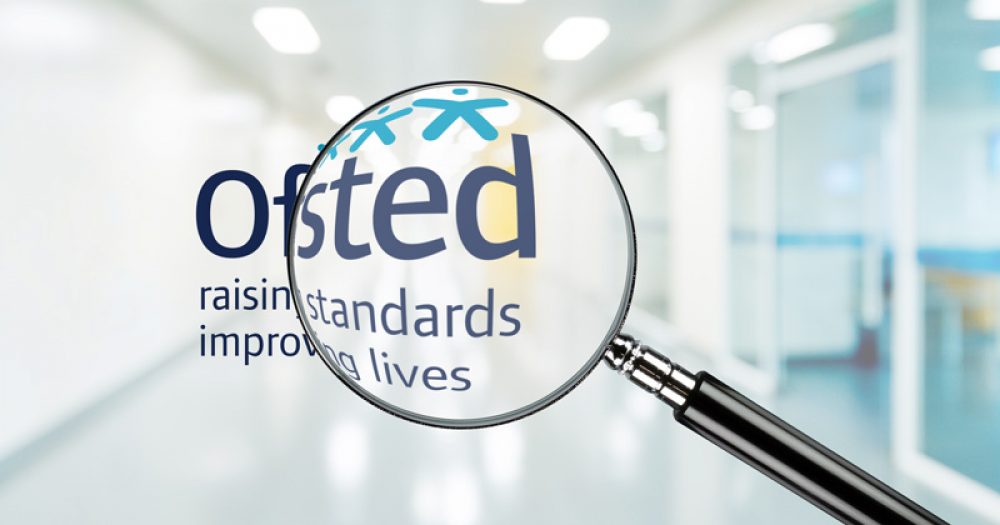Ofsted has published its review into school sex abuse today. But what will change for schools?
Here is your trusty Schools Week round-up of what the watchdog called for, and what the government has committed to do.
What Ofsted wants schools to do:
1. A relationships, sex and health education (RSHE) curriculum that includes time for “open discussion of topics that children and young people tell us they find particularly difficult, such as consent and the sending of ‘nudes’”.
2. High-quality training for teachers delivering RSHE.
3. Routine record-keeping and analysis of sexual harassment and sexual violence, including online, so schools can “identify patterns and intervene early to prevent abuse”.
4. A “behavioural approach”, including sanctions when appropriate, to reinforce a culture where sexual harassment and online sexual abuse are not tolerated.
5. Support for designated safeguarding leads (DSLs) such as protected time in timetables to engage with local safeguarding partners.
6. Training for staff and governors so they can “better understand” the definitions of sexual abuse, are able to spot early signs of such cases and can “consistently uphold standards in their responses” to incidents.
What the DfE has promised for schools:
1. “Encourage” schools to include RSHE curriculum and safeguarding guidance training as part of a national staff inset day.
2. Strengthen wording in the statutory ‘Keeping Children Safe in Education’ (KCSIE) guidance on recording cases of abuse, and make it clearer systems should be in place for children to confidently report abuse.
3. Extending the ‘What Works Centre for Children’s Social Care’ trial to strengthen support for DSLs to 10 more local authority areas and reach 500 more schools. It is currently being trialled in 30 areas.
4. Consider how to “give greater status and support to DSLs”, looking first at the model used for special educational needs coordinators.
5. “Revisit” the governance handbook to “ensure clarity” on what good staff training looks like.
What Ofsted wants government to do:
1. Strengthen safeguarding controls around children being able to access explicit material online, to be done through the Online Safety Bill.
2. Better coordination over how inspectorates deal with complaints about schools.
3. Strengthen the ‘Working together to safeguard children’ guidance to make the involvement of all schools with local safeguarding partners “more explicit”.
4. Clearer guidance to help schools make decisions where there are long-term investigations of harmful sexual behaviour, or when a criminal investigation does not lead to a prosecution or conviction.
5. Review and update the definitions of sexual abuse, including peer-on-peer, to “better reflect the experiences of young people”.
6. Develop an online hub with safeguarding guidance all in one place, with clear updates made in “good time” to aid planning.
7. Produce a guide for youngsters so they know what will happen next when they talk to an adult in school about sex abuse.
8. Develop national training for DSLs, as well as resources to help schools and colleges shape their RSHE curriculum.
9. Launch a communications campaign about sexual harassment and online sexual abuse, which should include advice for parents and carers.
What the DfE has promised government will do:
1. Work with the Department for Culture, Media and Sport to make sure the Online Safety Bill addresses safeguarding controls.
2. Ask children’s commissioner Dame Rachel de Souza to look at how the government can reduce the access young people have to harmful online content such as pornography.
3. The ISI has agreed to pass on all information on complaints about schools not meeting standards to the DfE. New ISI guidance on the complaints process has also been produced.
4. Agree to work with Ofsted to consider further updates to terminology, with the term “sexting” already removed from latest guidance.
5. Will keep the NSPCC helpline open until October.
6. Working on an online hub for DSLs to “better share advice and planning” as well as training.
7. Ministers will hold a roundtable with youngsters to inform any future communications campaigns.
What Ofsted has promised to do:
1. Ofsted and ISI will produce and jointly deliver further training on inspecting safeguarding in education settings.
2. Ofsted will request that college leaders supply records and analysis of sexual harassment and sexual violence, as schools already do. ISI will request the same for the schools it inspects.
3. Additional training for inspectors to ensure they “record how they have followed up this information on inspection”.
4. Inspectors will also hold discussions with single-sex groups of pupils “where this helps to understand better a school’s approach to tackling sexual harassment and sexual violence, including online”.








And in all this, there’s not a single mention of the responsibility of parents and their role in effective monitoring on their children’s phones. Effective parenting is seriously lacking unfortunately.
Taxpayers have funded HMCI six figure salary for well over quarter of a century. Never has parenting,, mainstream broadcast media or multi media business ever been criticised.
Mary Whitehouse what would you say?
After well over 25 years who will ever be prepared to say: OFSTED, an idiot could see this coming with the dot.com revolution and your preparedness for it was non-existent. You are reacting to events whilst claiming to shape outcomes.
Your reactions are woefully: slow, predictable and ineffective.
Holding to account and auditing. Is one thing. Your tag line remains: Raising Standards, Improving Lives,
When?
Own it. Live up to it. Be accountable for it. Or. Don’t say it.